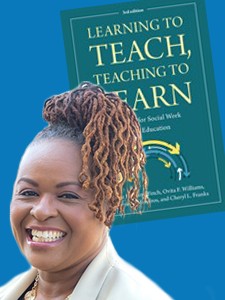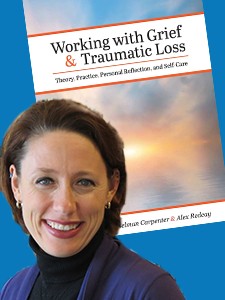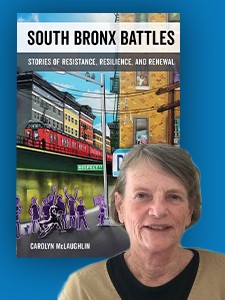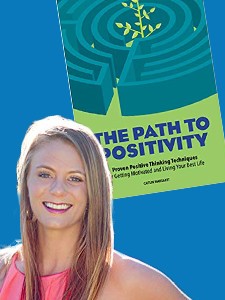2019 Books by Faculty, Alumni, Students & Staff
It’s been a banner year for books at the Columbia School of Social Work, with several new volumes coming out from the School’s faculty, alumni, students, and staff.
Just in time for holiday gift-giving and winter break reading, we highlight eight 2019 titles and two releasing in January 2020. Notably, three of these books came out with Columbia University Press. Congratulations to all the authors in our community who brought their works to fruition this year.

Blaming Immigrants: Nationalism and the Economics of Global Movement, by Neeraj Kaushal (Columbia University Press, January 2019)
Anti-immigration and ultranationalistic politics are rising in Europe, the United States, and countries across Asia and Africa. Economist Neeraj Kaushal investigates the rising anxiety in host countries and tests common complaints against immigration.
Special note: President Lee C. Bollinger has selected this book as one of three faculty titles he will give out as holiday gifts.
Comment from Professor Neeraj Kaushal: “Immigration is shaking electoral politics around the world. In my book, I investigate whether immigrants are the cause of these anxieties or merely a common scapegoat.”
See also: Neeraj Kaushal’s interview about the book on Social Work LIVE.

Treating Addiction: A Guide for Professionals, Second Edition, by William R. Miller, Alyssa A. Forcehimes, and Allen Zweben (Guilford Press, July 2019)
This widely respected text and practitioner guide provides a roadmap for effective clinical practice with clients with substance use disorders. Among other changes, this revised and expanded edition covers the new four-process framework for motivational interviewing, diagnostic changes in DSM-5, and advances in pharmacotherapy.
Comment from Professor Allen Zweben: “Motivational interviewing in this book is a foundation for everything we do. You read every chapter and it goes back to engaging skills, compassionate skills, collaborative skills. It’s a much kinder and gentler approach.”
See also: Allen Zweben’s interview about the book on Social Impact LIVE.

Learning to Teach, Teaching to Learn: A Guide for Social Work Field Education, Third Edition, by Jeanne Bertrand Finch, Ovita F. Williams, Jacqueline B. Mondros, & Cheryl L. Franks (Council for Social Work Education, September 2019)
This substantially revised text maintains the commitment to support field instructors in their task of educating students while also addressing current issues confronting social work field education. The book offers guidelines, examples, and language for modeling and teaching justice-based practice.
Comment from Associate Dean of Field Education Ovita Williams: “Field instructors are the on-site, hands-on, day-to-day educators in social work education. As educators, we have a duty to the communities we serve. It was important for me to participate in this edition with my colleagues to include a social justice framework for field instructors to create space for critical conversations in the supervisory relationship around privilege, racism, and all forms of oppression."

Statistics in Social Work: An Introduction to Practical Applications, by Amy Batchelor (Columbia University Press, November 2019)
For social workers, statistics are not just math, they are a critical practice tool. Using concrete illustrations from a variety of potential concentrations and populations, the author creates clear connections between theory and practice—and demonstrates the important contributions statistics can make to evidence-based and rigorous social work practice.
Comment from Amy Batchelor, MSW’14: “Social workers encounter statistics in their work and need to be able to understand, employ, and challenge them. My goal was to create an accessible book that focuses only on the topics most useful to social workers, including realistic examples of applying statistics to situations they may deal with in their practice.”

Working with Grief and Traumatic Loss: Theory, Practice, Personal Reflection, and Self-Care by Elisabeth Counselman Carpenter and Alex Redcay (Cognella Publishing, October 2019)
This unique text shares practicing clinicians’ personal journeys of loss in myriad forms, including spousal, child and parental death, suicide, genocide, mass disasters, loss of physical health, miscarriage and beyond, in order to strengthen the frameworks through which grief is viewed, help readers more deeply understand its global context, and emphasize the relevance of personal experience when engaging in practice.
Comment from Adjunct Professor Elisabeth Counselman Carpenter: “This book deepens clinical conversations around loss from the personal, cultural, and self-care lens.”

Making a Difference: My Fight for Native Rights and Social Justice by Ada Deer with Theda Perdue, Foreword by Charles Wilkinson (University of Oklahoma Press, New Directions in Native American Studies Series, October 2019)
This stirring memoir is the story of Ada Deer, the School’s first Native American graduate. Having grown up in poverty on the Menominee Reservation in Wisconsin, she led the struggle for restoration of the Menominees’ tribal status and trust lands, ran for Congress, served as assistant secretary of the Interior for Indian Affairs in the Clinton Administration, and was the first woman to serve as head of the Bureau of Indian Affairs.
Comment from Ada Deer, MSW’61, from a recent interview: “I do what I do and it gives me great joy to have the power I had. You’re up there by yourself, because you don’t have the support that you should have, so every day I kept doing what I thought was right.”

America the Beautiful and Violent: Black Youth and Neighborhood Trauma in Chicago by Dexter R. Voisin (Columbia University Press, August 2019)
Widespread media narratives portray an epidemic of neighborhood violence in urban areas―often ignoring the structural explanations advanced by community organizers and activities. The author provides a compelling and social-justice-oriented analysis of current trends in neighborhood violence in light of the historical and structural factors that have reproduced entrenched patterns of racial and economic inequality. Dr. Voisin is now dean of the Factor-Inwentash Faculty of Social Work at the University of Toronto.
Comment from Dexter Voisin, PhD’99: “Over the past two decades, I gave countless media interviews on neighborhood violence that were often reduced to incomplete sound bites. Therefore, it became important to write this book to humanize the communities that experience neighborhood violence and provide a fulsome explanation of the structural factors and policies that fuel it.”

Breaking Up with Sugar: Divorce the Diets, Drop the Pounds, and Live Your Best Life by Molly Carmel (Penguin Random House, December 2019)
Sugar is a substance with highly addictive potential – one that creates physical, neurological, and hormonal changes that often make moderation impossible. Using her training in Dialectic Behavior Therapy, the author addresses the emotional, spiritual, chemical, and physical components of this toxic relationship to help readers create a new and lasting relationship with food and with themselves.
Comment from Molly Carmel, MSW’02: “At my clinic in New York City, we’ve been practicing this for six years and had pretty remarkable success with people who otherwise weren’t getting well. I’m offering a different paradigm because in my own experience I couldn’t find a place that worked.”
See also: Molly Carmel’s interview about the book on Social Impact LIVE.

South Bronx Battles: Stories of Resistance, Resilience, and Renewal by Carolyn McLaughlin (University of California Press, May 2019)
In a span of about 10 years, the South Bronx lost 100,000 housing units to fires or abandonment, and its population decreased by 300,000 people, making the area an international symbol of urban decay. Many people wrongly blamed the residents for the shocking conditions. In South Bronx Battles, 100 community members tell the history of the Bronx through their own stories—during both the rough years and the rebuilding. The book ends with cautionary concerns about displacement and gentrification.
Comment from Carolyn McLaughlin, MSW’73: “For 34 years, I was the executive director of BronxWorks, which grew from a two-person storefront to become the largest settlement house in the Bronx. Writing South Bronx Battles provided me the opportunity to describe the importance of community-based services.”

Prescriptive Memories in Grief and Loss: The Art of Dreamscaping, by Nancy Gershman and Barbara Thompson (Routledge, January 2019)
Dreamscaping is a novel, strengths-based, and imaginal practice for helping clients create a resource-rich “prescriptive memory.” With chapters by internationally recognized authors and full-color dreamscape images co-created by clients and therapists, this is an exciting and innovative guidebook to a new method for cultivating hope.
Comment from Nancy Gershman, MSW’20: “How do you reach an individual frozen after loss of a person, place, or thing? In dreamscaping, you fool the brain to retrieve a brand-new memory, constructed from just a handful of old photographs and positive felt sense memory. You can use the technique in any modality. In under an hour, you’ve shifted the conversation from ‘What do you miss?’ to ‘What gives you joy?’”

Coming in January 2020:
Sexual Citizens: A Landmark Study of Sex, Power, and Assault on Campus, by Jennifer S. Hirsch and Shamus Khan (W.W. Norton, January 2020)
Why is sexual assault such a common feature of college life? What can be done to prevent it? Jennifer S. Hirsch and Shamus Khan present an entirely new framework for understanding campus sexual assault, based on the Sexual Health Initiative to Foster Transformation (SHIFT) at Columbia University, for which the School’s Louisa Gilbert is a co-investigator.
Comment from Professor Louisa Gilbert: “The SHIFT study uses rigorous mixed methods to shed new light on social determinants and risk environments associated with campus sexual assault. The book reframes sexual assault as a critical social justice issue. It captures the many compelling narratives that arise from the data and highlights the urgent need for structural and community-level approaches to tackle the problem of campus sexual assault as an ultimate expression of power and oppression.”

The Path to Positivity: Proven Positive Thinking Techniques for Getting Motivated and Living Your Best Life by Caitlin Margaret (Rockridge Press, January 2020)
The Path to Positivity provides mental tools to overcome negativity, renew motivation, get unstuck from the daily grind, and create lasting change. The author uses evidence-based strategies from various fields including psychology, mindfulness, and philosophy.
Comment from Caitlin Margaret, MSW’11: “I wrote this book to provide a practical roadmap for people to create more meaning and purpose in their lives. I wanted to provide an actionable toolkit for helping them to cultivate the courage, motivation, and compassion they require to pursue their dreams and overcome challenges from a positive and empowered inner state.”
Did we miss something? If you know of more titles that came out this year from members of the CSSW community, please share the details in the comments.